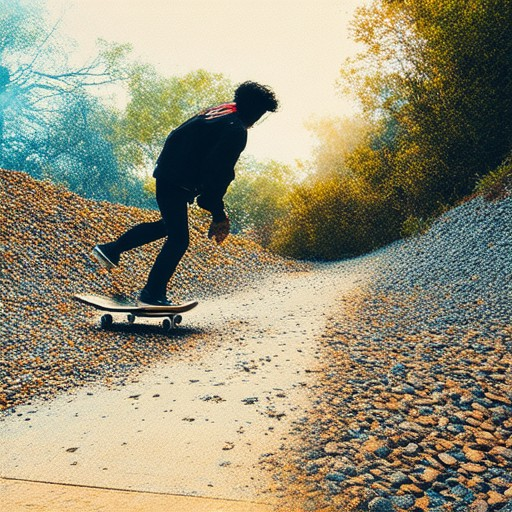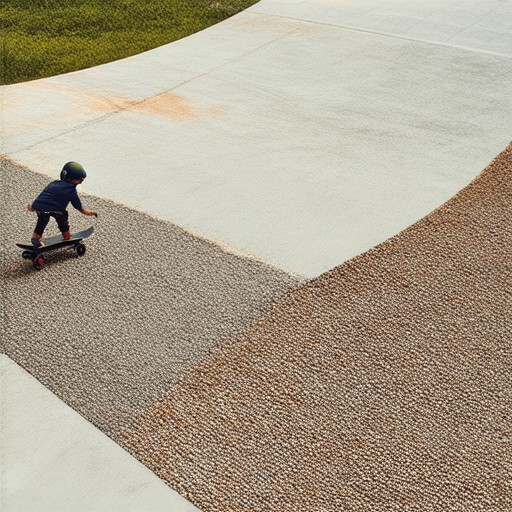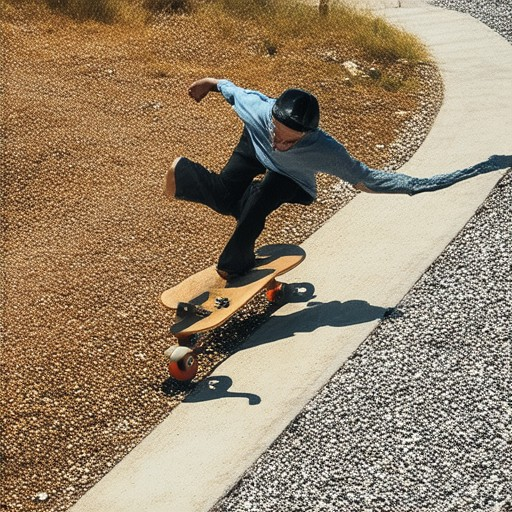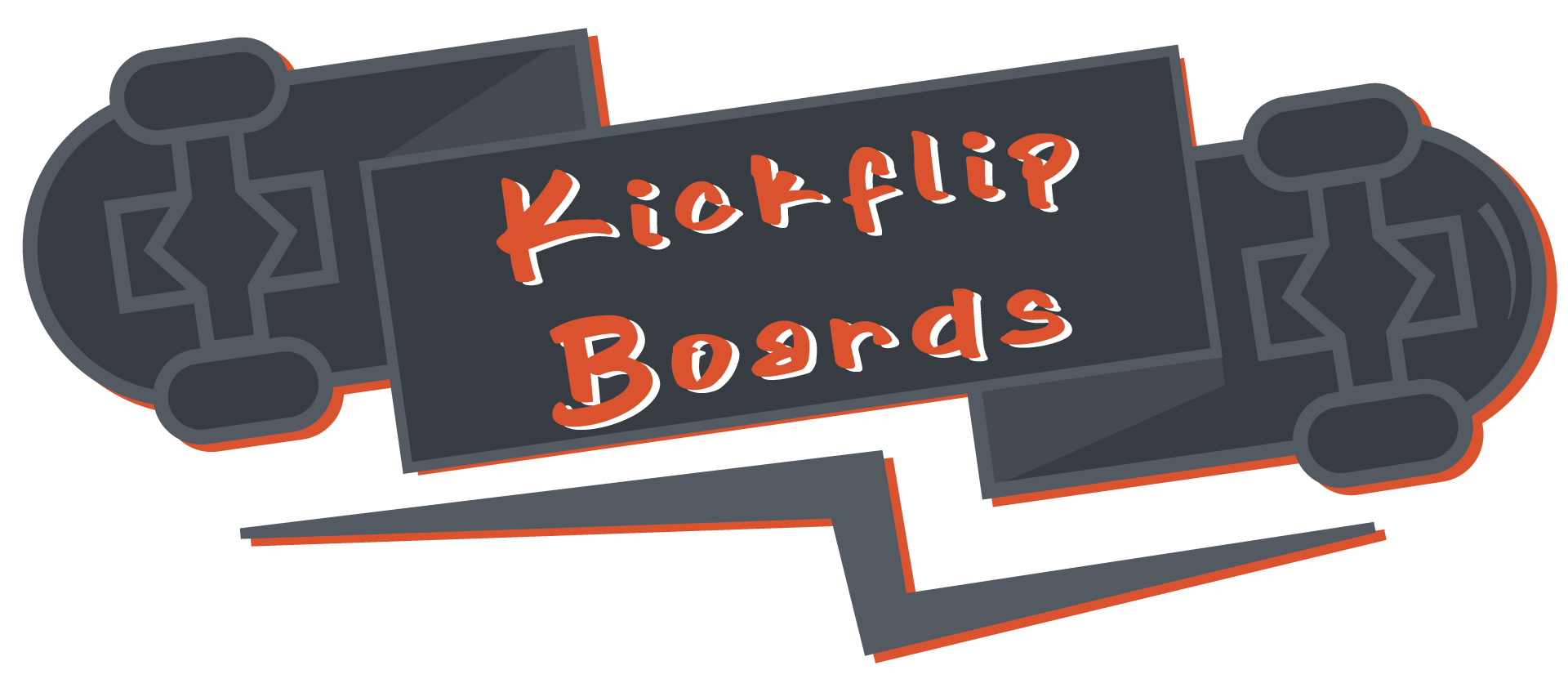When it comes to skateboarding, one of the most critical aspects that often goes overlooked is the choice of skateboard wheels. Whether you’re cruising down a smooth sidewalk, tackling rough roads, or hitting the park, the right wheels can make all the difference in your riding experience. Skateboard wheels and terrain compatibility is a topic that frequently confuses riders, especially when it comes to finding the best wheels for different surfaces. From navigating bumpy streets to gliding effortlessly on smooth concrete, understanding how skateboard wheels interact with various terrains is essential for optimizing both comfort and performance. This article dives into the key considerations, including the best skateboard wheels for rough terrain, how bearings and trucks influence compatibility, and the legal implications of riding on sidewalks. By exploring these factors, we aim to provide clear guidance for riders seeking to master their preferred surfaces. Whether you’re a seasoned skater or new to the sport, this comprehensive overview will help you make informed decisions about your setup and improve your overall riding experience.
Key Takeaways
- Ideal Wheel Characteristics for Sidewalks: Opt for medium durometer (90a-98a) wheels paired with larger sizes (51mm or 53mm) for stability and comfort on rough surfaces, ensuring truck flexibility for better control.
- Legality of Skateboarding on Sidewalks: Adhere to local laws, check for designated areas, prioritize safety with protective gear, and respect time restrictions to avoid penalties.
- Performance of 99A Wheels on Rough Roads: While 99A wheels excel in durability and technical performance, consider their harder nature for rough terrain; softer options like 83B or 85A may offer better comfort.
- Comparison of Wheel Hardness: Choose 83B or 85A wheels for improved cushioning on rough roads, balancing durability with comfort, or stick with 99A for technical skills and longevity.
- Recommended Brands: Explore trusted options from Bones Wheels and Spitfire Wheels for quality and variety in wheel selection.

Best Skateboard Wheels for Rough Terrain
When it comes to tackling rough terrain on a skateboard, choosing the right wheels is essential for comfort and control. Here’s a breakdown of the best options available:
Factors to Consider
- Hardness: Wheels vary in durometer (measure of hardness), affecting grip and speed.
- Diameter: Larger wheels (78mm-83mm) roll smoother over bumps, while smaller ones (51mm-54mm) are lighter and faster.
- Tread Design: Bumpier treads provide better grip on uneven surfaces.
Top Wheel Options for Rough Terrain
1. 78mm x 51mm Hardboi
A classic choice for rough terrain, these wheels offer a balance of durability and grip. Their larger size enhances stability, making them ideal for technical trails or park features.
2. 80mm x 54mm Softboi
Perfect for smoother surfaces and light terrain, softboi wheels provide excellent cushioning. However, they may lack the grip needed for rougher conditions.
3. 83mm x 53mm Block
These wheels feature a chunky tread design, offering superior grip on loose surfaces like gravel or dirt. They’re great for downhill runs and steep descents.
4. 75mm x 45mm Slalom
Specialized slalom wheels are lightweight and fast, excelling on smooth surfaces. They may not handle rough terrain as well as wider options.
5. 84mm x 52mm Hybrid
A versatile option, hybrid wheels combine the benefits of larger sizes with a moderate hardness, making them suitable for various terrains.
Comparison Chart
| Model | Size | Hardness | Grip | Buoyancy |
|---|---|---|---|---|
| 78mm x 51mm Hardboi | 78mm x 51mm | 7.5-8.0 | High | Moderate |
| 80mm x 54mm Softboi | 80mm x 54mm | 6.5-7.0 | Medium-High | Low |
| 83mm x 53mm Block | 83mm x 53mm | 7.5-8.0 | Very High | High |
| 75mm x 45mm Slalom | 75mm x 45mm | 6.0-7.0 | Medium | Very Low |
| 84mm x 52mm Hybrid | 84mm x 52mm | 7.0-7.5 | Medium-High | Moderate |
Choosing the Right Wheels
For the best performance on rough terrain, we recommend testing wheels in person or considering the specific conditions you’ll encounter most often. Brands like Kickflip Boards offer a variety of options tailored to different riding styles.
Looking for more information? Check out our complete guide to skateboard wheels for detailed reviews and buying tips.
Do skateboard bearings fit all wheels?
Skateboard bearings are designed to be compatible with most wheels due to their standardized measurements. Here’s what you need to know:
All skateboard bearings typically measure 8mm (core diameter), 22mm (outer diameter), and 7mm (width). These measurements are consistent across most brands and models, making them suitable for a wide range of wheels.
While the bearings may fit most wheels, there are a few exceptions. Some specialty wheels, particularly those designed for extreme sports like vert or downhill skating, might require bearings with slightly different dimensions or axles to optimize performance. However, these are niche cases and not commonly found in standard setups.
When choosing bearings, always verify the specifications of your wheels and the bearings themselves to ensure compatibility. Most reputable brands like Bones Bearings , Independent Bearing Co. , and Thunder Trucks offer bearings that are universally compatible with standard wheels.
For the majority of skateboarders, standard bearings will work well and fit most wheels. Just make sure they’re properly installed and aligned with your axle setup for optimal performance and durability.

Are Skateboard Trucks Universal?
Skateboard trucks are not universal due to variations in design and compatibility. Different trucks cater to specific wheel sizes, axle lengths, kingpin heights, and pivot cup configurations, making them suitable for various riding styles and setups. Here’s a breakdown of key differences:
- Wheel Compatibility : Trucks are designed to work best with specific wheel sizes. For example, 51mm wheels often pair with certain trucks, while wider wheels may require specific axle widths.
- Axle Length : The length of the axle affects stability and how the truck turns. Longer axles can handle bigger wheels and provide better stability, while shorter axles are lighter and faster.
- Kingpin Height : The height of the kingpin (the pivot point) determines the truck’s concavity and how it feels underfoot.
- Pivot Cups : Different pivot cups (usually 0.5-inch or 1.5-inch) influence the truck’s responsiveness and how it transitions during tricks.
Some popular truck brands include Independent, Thunder, Krux, and Element, each offering unique features. For more information on selecting the right truck for your setup, visit Kickflip Boards .

Skateboard Wheels for Sidewalk Concrete
To determine the ideal skateboard wheels for riding on normal sidewalk concrete, consider the following:
- Durometer (Hardness): Medium durometer wheels, ranging from 90a to 98a, are recommended for street skating on rough surfaces like sidewalks. These wheels provide adequate shock absorption and durability.
- Wheel Size: Larger wheels (e.g., 51mm or 53mm) are advantageous as they roll over cracks and potholes more effectively, enhancing stability and comfort.
- Truck Flexibility: Pair medium-hard wheels with trucks that allow some flexibility for better control. Harder wheels may be preferable if the trucks are stiffer, offering a smoother ride.
While medium durometers are optimal for typical sidewalk conditions, personal preference and specific surface challenges may influence your choice. Experiment with different wheel sizes and durometers to find the setup that suits your riding style best.
Is It Illegal to Ride a Skateboard on a Sidewalk?
Whether it is illegal to ride a skateboard on a sidewalk depends on the local laws and regulations in your area. Many cities and towns have specific rules regarding where skateboarding is permitted.
- Local Laws and Regulations: In most urban areas, sidewalks are primarily intended for pedestrian traffic. Riding a skateboard on a sidewalk can violate local ordinances and may result in fines or penalties.
- Designated Areas: Some cities have specific areas, such as parks or recreational zones, where skateboarding is encouraged and regulated. Check for signs indicating where skateboarding is allowed.
- Safety Considerations: Skateboarding on sidewalks can be unsafe due to potential collisions with pedestrians. Always wear protective gear and be aware of your surroundings.
- Time Restrictions: Some areas may restrict skateboarding to certain hours or during specific events. Verify local regulations before riding.
For precise information, consult your city’s transportation website or local law enforcement office. Always adhere to local rules to avoid penalties and ensure safe participation in skateboarding activities.

Are 99A Wheels Good for Rough Roads?
Skateboard wheels, including those rated at 99A hardness, play a crucial role in determining how well your board performs on various surfaces. While 99A wheels are known for their durability and responsiveness, their hardness makes them particularly suited for technical skateboarding and smooth surfaces. However, their firmness can make them less comfortable on rough or uneven terrain.
What Makes 99A Wheels Unique?
- Durability: 99A wheels are highly resistant to wear and tear, making them ideal for street skating and park sessions where boards take a lot of abuse.
- Responsive Feel: These wheels offer excellent grip and control, allowing riders to maneuver smoothly through tight turns and rough patches.
- Technical Performance: Designed for high-speed stability, 99A wheels excel in technical tricks and fast-paced movements.
Are 99A Wheels Suitable for Rough Roads?
While 99A wheels perform exceptionally well on smooth surfaces, they may not be the most comfortable choice for rough roads due to their firm construction. The lack of flexibility can make them feel harsher on uneven surfaces, potentially affecting ride comfort.
Comparing Wheel Hardness Levels
- 99A vs. 83B: 83B wheels are softer and provide better cushioning on rough roads, making them a more forgiving option compared to 99A.
- 85A: A middle ground between soft and hard wheels, 85A offers a balance of durability and comfort, suitable for mixed surfaces.
Competitor Products
Kickflip Boards recommends exploring options from trusted brands like Bones Wheels and Spitfire Wheels . Each brand offers a variety of wheel hardnesses tailored to different riding styles, ensuring you find the perfect fit for your needs.
Conclusion
For optimal performance on rough roads, consider wheels with a softer durometer rating, such as 83B or 85A. However, if you prioritize durability and technical performance, 99A wheels remain a solid choice for experienced riders. Always assess your riding conditions and personal preferences before making a decision.




0 Comments